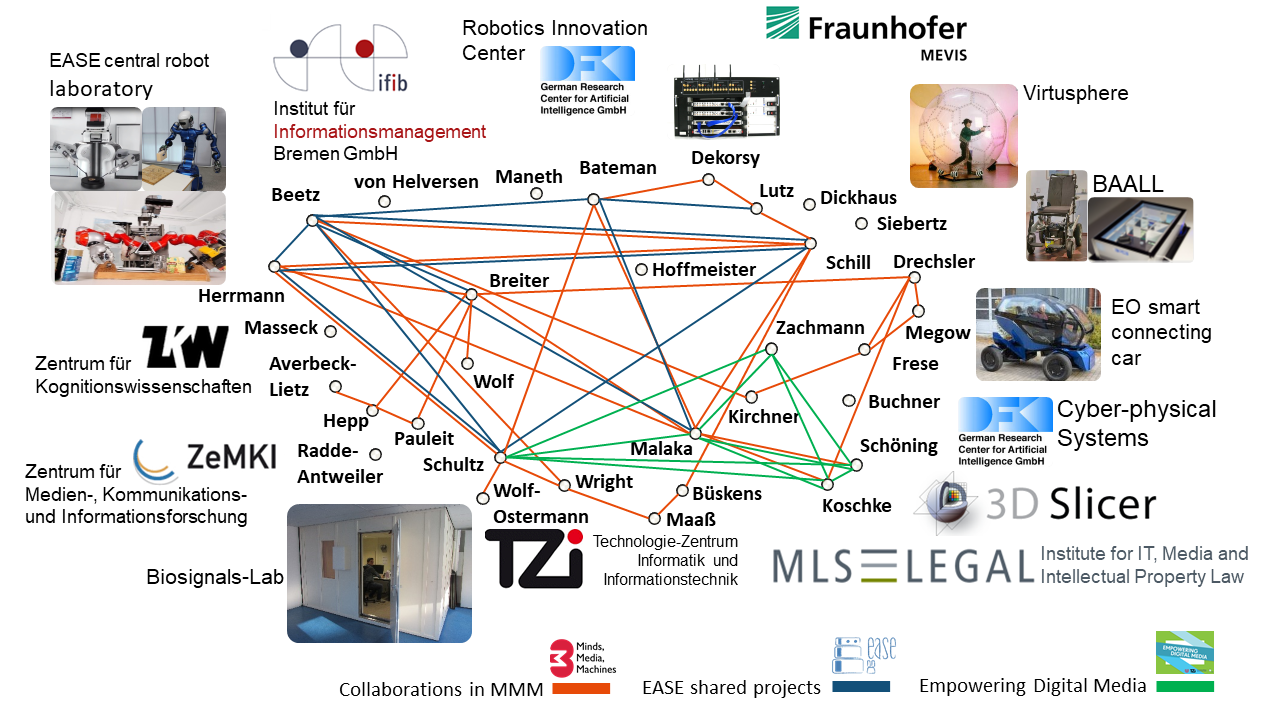Matej Meza / University of Bremen
U Bremen Excellence Chairs is a programme that strengthens the international networking and visibility of existing research strengths and promotes the internationalization of research at a high level.
Up to eight Chairs are funded over a period of four to seven years from the university lump sum as part of the Excellence Initiative of the federal and state governments. The chairs are considered outstanding in their respective disciplines and are bridgeheads to leading institutions worldwide.
Further information on this program and the non-MMM Chairs at the University of Bremen can be found on the University's Excellence page.


Professor in the Department of Electrical and Computer Engineering at the National University of Singapore (Singapore).
Prof. Dr. Haizhou Li was awarded the U Bremen Excellence Chair for his research into a biologically inspired model for machine hearing that is supposed to be on a par with human hearing. To this end, he founded the "Machine Listening Laboratory" in the Minds, Media, Machines research focus area.
Prof. Dr. Haizhou Li is in charge of a research program in which a biologically inspired model for machine listening will be designed, implemented and tested that mimics the ability of human listening.
The research group is pursuing an anthropomorphic approach to address the challenges of machine listening with the modern paradigm of explainable artificial intelligence. This anthropomorphic approach consists of a cognitive loop that couples the input side of speech acquisition with the output side of speech comprehension in both directions. The approach promises to vastly improve the use of speech-based technologies in real-world scenarios, such as auditory attention in cocktail party scenarios, speech recognition in multispeaker scenarios, and robotic hearing.
The research marks a turning point for speech processing architectures, which to this day are based on simple directed processing from input to output.

Prof. Yvonne Rogers is the Director of the Interaction Centre at UCL (UCLIC), deputy head of the Department for Computer Science and Professor of at UCL since 2012.
She currently holds a U Bremen Excellence Chairwith MMM member Prof. Dr. Johannes Schöning as host.
Yvonne Rogers is known for her basic research in the field of technologies for augmenting and "augmenting" human abilities.
She has developed new theories (e.g. external cognition), alternative methods (e.g. in the wild studies) and far-reaching research agendas (e.g. "Being Human: HCI in 2020", which set out future challenges for ubiquitous computing). She has developed an approach to innovation and ubiquitous learning and has conducted numerous empirical research studies on how interactive technologies can best support collaborative learning and working.
In Bremen, Yvonne Rogers and her team are investigating how personal data can be used in combination with AI techniques from a human-centered perspective to improve the quality of healthcare.
The members work closely together both in individual working groups and as part of larger joint projects and initiatives.


